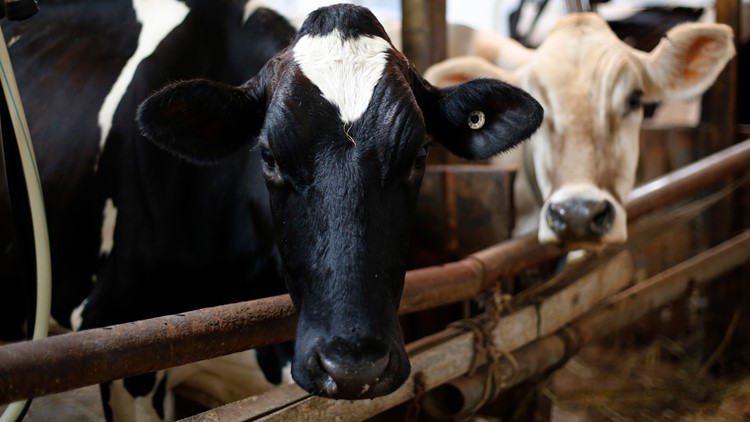In the second round of Maine Department of Agriculture, Conservation and Forestry (DACF) statewide retail milk testing, one of 20 retail samples from a central Maine dairy farm contained high levels of Perfluorooctanesulfonic acid (PFOS).
Per- and poly-fluoroalkyl substances (PFAS) are a large group of human-made fluorinated chemicals that became widely used in household products and industrial settings as early as the 1950s. There are over 4,000 compounds that have been identified as PFAS to-date, including PFOS. Studies suggest that these chemicals may affect cholesterol levels, thyroid function, birth weight, liver function, infant development, and the immune system.
The detection of PFOS in milk from the farm exceeds the State of Maine’s PFOS action threshold of 210 parts per trillion (ppt). Three separate on-farm milk samples taken in late June and early July detected PFOS at 12,700, 14,900, and 32,200 ppt. DACF investigated the sample to have a 65.7 ppt result, and, with cooperation from the milk processor, was able to trace the source directly back to the farm in central Maine.
The farm is no longer producing milk for consumption and is not contributing to the milk supply.
DACF says Maine’s retail milk supply continues to be safe for consumption, as 19 of the 20 samples tested were below the laboratory’s reporting limit of 25 ppt.
“Our testing approach allows us to identify and investigate potential issues of concern before they can become a problem, so we can ensure that retail milk in Maine is safe,” Amanda Beal, DACF Commissioner, said in a statement. “At the same time, the State is committed to helping farmers who may be impacted by PFAS contamination to find a viable path forward to continue farming and producing products that are safe for people to consume.”
DACF and the Maine Department of Environmental Protection (DEP) are investigating the potential source(s) of PFOS and other PFAS on the farm, including historical activities and site-specific attributes that might affect test results. DACF says livestock feed and water samples have been collected and submitted for analysis.
Because the farm produces beef, as a precautionary step, DACF has asked the Maine Center for Disease Control and Prevention (CDC) to develop a PFOS action threshold for beef. Once established, this action threshold will allow for on-farm testing to occur and further understanding of PFOS impacts in this arena. The farm may not currently sell its cattle or any beef products.
DACF is working collaboratively to research, develop, and implement PFAS response strategies with other state and federal agencies, local governments, industry organizations, and other stakeholders. DACF is advocating for additional sources of federal funding and support to assist farmers who face financial hardship from lost production caused by PFAS contamination.
DACF says it will conduct its next retail milk test this fall.



